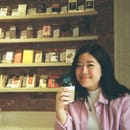My expectations for Crazy Rich Asians were very high. I book clubbed the whole trilogy and fell in love. The books, chronicling protagonist Rachel’s journey to Asia and discovery that boyfriend Nick’s family is crazy rich and crazy overprotective, are pure-cheesy, romantic, dramatic fun. And of course, as an Asian American, the fact that the first book was big enough to get an adaptation means the world to me. The last time we got a story exploring what it means to be Asian American, adapted with a large cast of leading Asian actors, was 25 years ago with The Joy Luck Club.
I was ready to love the movie for all the Asian representation it’s ushering in with its lead actors, director, and source material. I was also prepared for it to be a bad movie. After all, my hopes were high and adaptations fail all the time, let alone one this dicey. It’s hasn’t just been a long while for Asian representation. It’s also been a long time for good rom-coms too. So I sat in this weird state of being excited but also prepared for utter disappointment. But then the opening song “Waiting for Your Return” by Jasmine Chen played, the audience cheered, and I just started having fun.
Crazy Rich Asians manages to have lovable human characters to ground all the dramatics of its plot. Awkwafina is hilarious as Peik Lin and Ken Jeong is real funny as her dad. Their extra screen time was a crowd pleaser and welcome deviation from the book. Michelle Yeoh played the role of protective mother Eleanor incredibly well. She can go out of line but it’s always clear she acts out of love. Constance Wu and Henry Golding have great chemistry as Rachel and Nick. Constance Wu in particular really made the film for me. She carried many of the film’s emotional moments and Rachel’s downfalls with grace and heart.
In some ways though, Crazy Rich Asians is like every other rom-com. There’s the brilliant female lead from humble beginnings and the affluent handsome leading man who despite coming from different worlds, fall in love. There’s the disapproving parent and (mini spoiler!) we even get a classic rom-com declaration of love as someone is about to leave on a plane.
But also at the core of Crazy Rich Asians’ story is Rachel realizing that the American part of her Asian American identity makes her an outsider in Singapore. It’s this added layer of cultural tension that gives the old rom-com tropes new life. When Nick’s mother Eleanor tells Rachel she will “never be enough,” there’s more at stake than whether the two leads will end up together. On the surface, it’s the rich mother protecting her son and their status. In a larger sense it’s about how immigrants are made into outsiders no matter where we are. You’re not American enough but you’re also not quite Asian enough either. Rachel being an outsider not only gives a surrogate for the audience to enter this new crazy rich world with, but also gives her story meaning independent of her love story with Nick. By the end, we’re not just rooting for Rachel to get the guy. We’re rooting for her to realize that even though she grew up in America and she doesn’t know the ins-and-outs of Chinese tradition, she is indeed worthy and enough. This movie may first and foremost be for Asian Americans, but Rachel’s outsider status and fight for acceptance is something everyone will relate and empathize with.
The movie is also visually stunning, set in a colorful and lush Singapore. The show stopping set was the Young family mansion. I don’t think any mansion could ever quite top reader imaginations formed from the grandiose book descriptions, but this is one big-a*s mansion. The secluded mansion is topped with armed guards, the rarest flowers, and tons of vintage Asian home decor. Even just shots of characters enjoying Singaporean street food make for a dynamic and lively scene. It’s refreshing to see a film not just use an Asian country and its people as exotic backdrop for white protagonists. It makes the use of Singapore and its culture feel earned rather than just decorative.
The soundtrack is another highlight. It’s unapologetically Asian yet also fun and upbeat for everyone. The Cantonese rendition of Madonna’s “Material Girl” was everything. The best part of the film though was seeing it with a crowd. The theater experience of everyone laughing, cheering, and tearing up is what makes Crazy Rich Asians so worth while.
There were, however, some points where the plot felt over-stuffed. The film manages the balancing act of all its intertwining characters well enough, but there are still side stories that could’ve used more development. Given all the important side plots though, between Astrid’s marriage and Eleanor’s strained relationship with her own mother-in-law, they manage to fit a lot of plot into this movie. The important plot lines get their conclusion. All the deviations and material cut from the book helped to focus this adaption. They even fit in an adorable mid-credit scene.
Crazy Rich Asians is a movie that manages to have fun despite all the stakes riding on its existence. Let’s be clear, this is a great movie but it’s also not going to make every Asian American feel seen. And that’s fine, it doesn’t have to. At the end of the day, like all great rom-coms, Crazy Rich Asians is shiny decadent wish-fulfillment – not the epitome of Asian American experience. Like The Joy Luck Club 25 years ago, Crazy Rich Asians may not tell the stories of every Asian American, but paves the way for more of our stories.
So even now, days after seeing the movie, I’m still in that weird place of being excited and prepared for utter disappointment. There’s just still so much left to hope for. I hope Crazy Rich Asians does well. I hope we get to see the whole Crazy Rich series adapted. I hope that it makes enough money for Hollywood to see that Asian American stories are worth telling. I hope it makes enough of an impact that we don’t have to wait another 25 years for a film like this.



